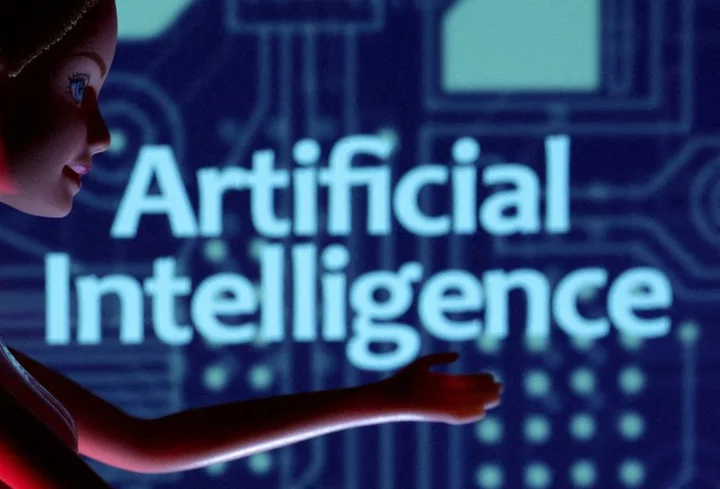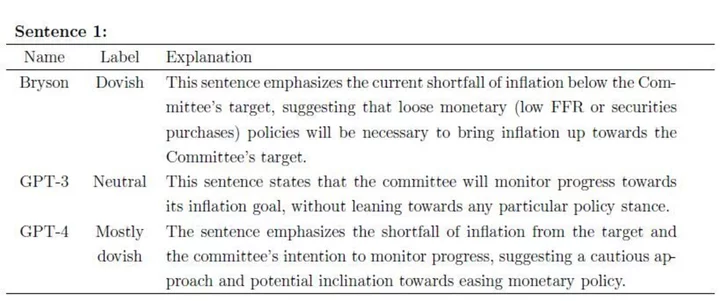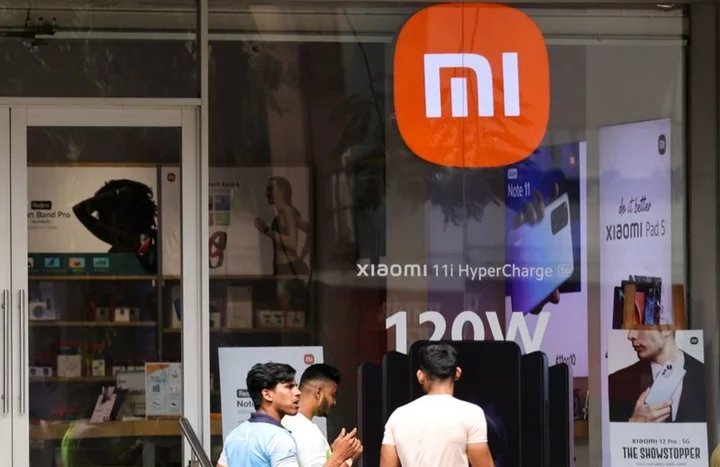
AI boom triples valuation of Lightmatter, US startup using light for computing
By Jane Lanhee Lee OAKLAND, California Lightmatter, a Boston-based startup using light for AI computing, said on Wednesday
2023-05-31 22:20

Apple Headset Enthusiasm Is Absent on Wall Street
The prospect of Apple Inc.’s first new product category in nearly a decade could hardly be attracting less
2023-05-31 21:53

Electric car drives for 100 hours non-stop on futuristic road
An electric car has driven nearly 2,000km (1,250 miles) without stopping to charge as part of a demonstration of an electric road that wirelessly charges vehicles as they drive. Israeli startup Electreon claims the achievement is a new world record for the longest time and distance ever driven non-stop by a passenger electric vehicle (EV), taking just over 100 hours to cover 1,942 kilometres. The stunt was completed using a specially adapted Toyota RAV4, which drove in circles around a track fitted with Electreon’s Wireless Electric Road technology. The startup claims its tech can solve some of the fundamental challenges facing widespread EV adoption, including range anxiety, slow charge times and battery size. “The objective of this 100-hour non-stop driving rally was to demonstrate the unlimited technical potential of Wireless Electric Road technology to power EVs to drive indefinitely with a minimal battery,” said Reuven Rivlin, Electreon’s honorary president. “This is yet another clear signal that our Wireless Electric Road technology is ready for large-scale commercial projects globally.” The five-day drive involved 56 different drivers, with the vehicle only pausing momentarily to switch between drivers. Electreon plans to develop its wireless charging technology for vehicles alongside Toyota, having signed an agreement with the Japanese automotive giant in March. “This partnership will make wireless charging accessible to a diverse and wide range of drivers, and will demonstrate the many benefits of wireless charging as a cost-effective, clean solution for charging EVs, as well as a catalyst in reducing EVs’ carbon footprint,” Electreon chief executive Oren Ezer said at the time. Top-of-the-range electric vehicles in production currently have a range of just over 500km, though some prototypes have already passed the 1,000km mark. Last year, an electric Mercedes drove from Germany to the UK on a single charge, covering more than 1,200km. The Vision EQXX completed the record-breaking journey in just 15 hours, using a battery that has the same capacity as a Tesla Model S. The state-of-the-art is unlikely to ever go into mass production due to the costs of making it, however recent advances in battery technology could see the range of commercial electric vehicles rise significantly in the near future. A China-based battery startup announced earlier this month that it was aiming to become the first company in the world to mass produce electric vehicle batteries with a range of 1,000km thanks to an innovative lithium-manganese-iron-phosphate design. Other companies are also working on electrified roads for wireless or conductive charging, with Sweden unveiling plans to build around 3,000km of electric road by 2045. Read More Scientists break world record for solar power window material Electric car range set to double with first production of breakthrough battery Opinion: The real reason companies are warning that AI is as bad as nuclear war US and China ‘intertwined like conjoined twins,’ says Musk Huge ‘plume’ seen coming out of nearby moon that could support alien life
2023-05-31 21:25

Hedge Funds Are Deploying ChatGPT to Handle All the Grunt Work
The latest artificial-intelligence hype is powering a massive surge in the stock market on bets that a new
2023-05-31 20:28

For the few women who sit atop S&P 500 companies, thinner paychecks as median compensation slips
Last year was a mixed bag pay-wise for the women who run companies in the S&P 500 -- compensation increased for more than half of them, but the median pay package fell 6%
2023-05-31 20:23

‘I feel lost’ – AI pioneer speaks out as experts warn it could wipe out humanity
One of the “godfathers” of artificial intelligence (AI) has said he feels “lost” as experts warned the technology could lead to the extinction of humanity. Professor Yoshua Bengio told the BBC that all companies building AI products should be registered and people working on the technology should have ethical training. It comes after dozens of experts put their name to a letter organised by the Centre for AI Safety, which warned that the technology could wipe out humanity and the risks should be treated with the same urgency as pandemics or nuclear war. Prof Bengio said: “It is challenging, emotionally speaking, for people who are inside (the AI sector). It's exactly like climate change. We've put a lot of carbon in the atmosphere. And it would be better if we hadn't, but let's see what we can do now Professor Yoshua Bengio “You could say I feel lost. But you have to keep going and you have to engage, discuss, encourage others to think with you.” Senior bosses at companies such as Google DeepMind and Anthropic signed the letter along with another pioneer of AI, Geoffrey Hinton, who resigned from his job at Google earlier this month, saying that in the wrong hands, AI could be used to to harm people and spell the end of humanity. Experts had already been warning that the technology could take jobs from humans, but the new statement warns of a deeper concern, saying AI could be used to develop new chemical weapons and enhance aerial combat. AI apps such as Midjourney and ChatGPT have gone viral on social media sites, with users posting fake images of celebrities and politicians, and students using ChatGPT and other “language learning models” to generate university-grade essays. But AI can also perform life-saving tasks, such as algorithms analysing medical images like X-rays, scans and ultrasounds, helping doctors to identify and diagnose diseases such as cancer and heart conditions more accurately and quickly. Last week Prime Minister Rishi Sunak spoke about the importance of ensuring the right “guard rails” are in place to protect against potential dangers, ranging from disinformation and national security to “existential threats”, while also driving innovation. He retweeted the Centre for AI Safety’s statement on Wednesday, adding: “The government is looking very carefully at this. Last week I stressed to AI companies the importance of putting guardrails in place so development is safe and secure. But we need to work together. That’s why I raised it at the @G7 and will do so again when I visit the US.” Prof Bengio told the BBC all companies building powerful AI products should be registered. “Governments need to track what they’re doing, they need to be able to audit them, and that’s just the minimum thing we do for any other sector like building aeroplanes or cars or pharmaceuticals,” he said. “We also need the people who are close to these systems to have a kind of certification… we need ethical training here. Computer scientists don’t usually get that, by the way.” Prof Bengio said of AI’s current state: “It’s never too late to improve. “It’s exactly like climate change. We’ve put a lot of carbon in the atmosphere. And it would be better if we hadn’t, but let’s see what we can do now.” We don't quite know how to understand the absolute consequences of this technology Professor Sir Nigel Shadbolt Oxford University expert Sir Nigel Shadbolt, chairman of the London-based Open Data Institute, told the BBC: “We have a huge amount of AI around us right now, which has become almost ubiquitous and unremarked. There’s software on our phones that recognise our voices, the ability to recognise faces. “Actually, if we think about it, we recognise there are ethical dilemmas in just the use of those technologies. I think what’s different now though, with the so-called generative AI, things like ChatGPT, is that this is a system which can be specialised from the general to many, many particular tasks and the engineering is in some sense ahead of the science. “We don’t quite know how to understand the absolute consequences of this technology, we all have in common a recognition that we need to innovate responsibly, that we need to think about the ethnical dimension, the values that these systems embody. “We have to understand that AI is a huge force for good. We have to appreciate, not the very worst, (but) there are lots of existential challenges we face… our technologies are on a par with other things that might cut us short, whether it’s climate or other challenges we face. “But it seems to me that if we do the thinking now, in advance, if we do take the steps that people like Yoshua is arguing for, that’s a good first step, it’s very good that we’ve got the field coming together to understand that this is a powerful technology that has a dark and a light side, it has a yin and a yang, and we need lots of voices in that debate.” Read More Charity boss speaks out over ‘traumatic’ encounter with royal aide Ukraine war’s heaviest fight rages in east - follow live Cabinet approves Irish involvement in cyber-threat network Trust and ethics considerations ‘have come too late’ on AI technology Mitigating ‘extinction’ from AI should be ‘global priority’, experts say
2023-05-31 19:29

India to launch electronics repair pilot project
BENGALURU India is launching a pilot project aimed at stimulating its electronics repair outsourcing industry by relaxing some
2023-05-31 19:23

EU tech chief calls for voluntary AI code of conduct within months
By Philip Blenkinsop LULEA, Sweden The United States and European Union should push the artificial intelligence (AI) industry
2023-05-31 19:15

British consortium to invest $9 billion in Indonesia mining, EV batteries, minister says
JAKARTA A British consortium that includes mining giant Glencore will invest about $9 billion in Indonesia's mining and
2023-05-31 17:53

Pay packages for female CEOs fell last year after big gains in 2021, ranks remain thin
Last year was a mixed bag pay-wise for the women who run companies in the S&P 500 -- compensation increased for more than half of them, but the median pay package fell 6%
2023-05-31 17:51

CEOs got smaller raises. It would still take a typical worker two lifetimes to make their annual pay
After ballooning for years, CEO pay growth is finally slowing
2023-05-31 17:23

A 'City of Atlantis' has been discovered after being lost for 600 years
The remains of a church from a sunken town known as the 'Atlantis of the North Sea' has been discovered beneath the mud on Germany's coast. The church is believed to be part of a site called 'Rungholt' located in the Wadden Sea. The town, which was previously thought to be a local legend, has not been seen since 1362 after it was submerged beneath the waves during an intense storm. However, new research has shown that the town really did exist and that they had built reinforcements around the settlement to protect them from the severe elements. The research was carried out on the area by archeologists from Kiel University, Johannes Gutenberg University Mainz, the Center for Baltic and Scandinavian Archaeology, and the State Archaeology Department Schleswig-Holstein. Sign up to our free Indy100 weekly newsletter Searching the Wadden Sea which is the longest stretch of intertidal sand and mud flats on Earth, the team, using geophysical imaging technology found man-made mounds that had been constructed to protect the town against the tides. Amongst this structure were the foundations of a building which the team determined had to be a church which may have been the location of the town centre. In a statement, Dr. Dennis Wilken, a geophysicist at Kiel University of Kiel University said: "Settlement remains hidden under the mudflats are first localized and mapped over a wide area using various geophysical methods such as magnetic gradiometry, electromagnetic induction, and seismics." Dr. Hanna Hadler from the Institute of Geography at Mainz University added: "Based on this prospection, we selectively take sediment cores that not only allow us to make statements about spatial and temporal relationships of settlement structures, but also about landscape development." Dr. Ruth Blankenfeldt, an archaeologist at ZBSA also suggested that the "special feature of the find lies in the significance of the church as the centre of a settlement structure, which in its size must be interpreted as a parish with superordinate function." The storm that washed away Rungholt has gone down in history as one of the largest to ever hit the region, affecting not just Germany but also the Netherlands, Denmark and the UK. The storm happened on January 1362 and has since been referred to as "the great drowning of men." According to historical reports, Rungholt was once a busy trading port for fishermen but was also populated by taverns, brothels and churches. Have your say in our news democracy. Click the upvote icon at the top of the page to help raise this article through the indy100 rankings.
2023-05-31 17:17
